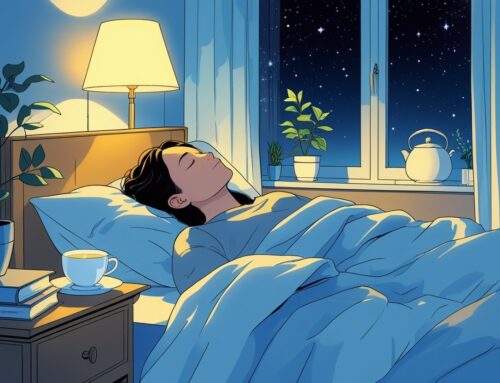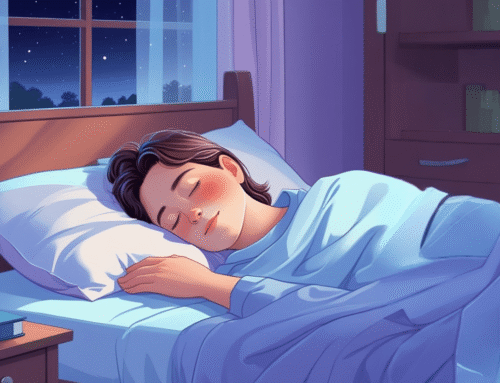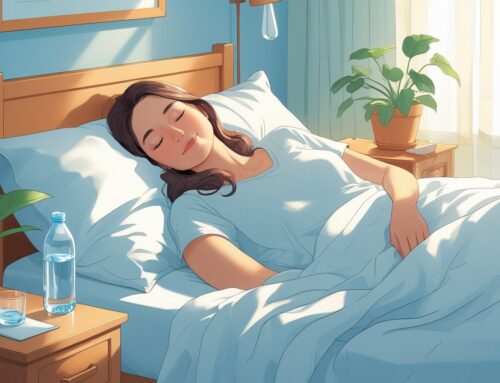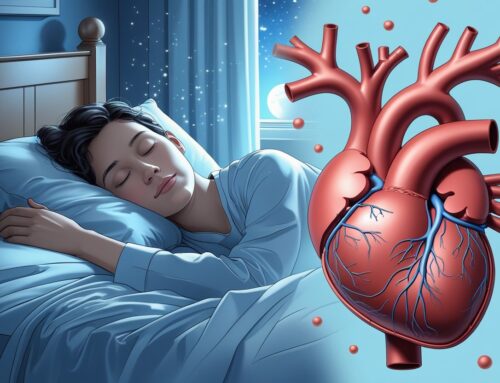Getting only three hours of sleep in a night causes immediate problems such as tiredness, poor focus, and mood changes. While three hours is better than no sleep, it is still lacking from what the body and brain need to function properly. This level of rest disrupts thinking and reaction time, which makes daily tasks more difficult and raises the risk of accidents.
When someone gets very little sleep, their body loses the ability to recover and function well. Short-term effects often include drowsiness, slower thinking, and poor memory. These symptoms worsen with continued sleep loss, so getting enough rest after a rough night remains essential.
Many people end up with only three hours of sleep because of stress, work, or demanding schedules. Although an occasional short night might seem manageable, it isn’t a healthy pattern to follow. Knowing how sleep affects the body can lead to better habits and help avoid long-term issues.
Key Takeaways
- Three hours of sleep leads to tiredness and reduced mental clarity.
- Short nights of sleep make recovery more difficult and raise the risk of accidents.
- Missing sleep on a regular basis hurts overall health and daily functioning.
- A quality mattress that supports spinal alignment and regulates temperature helps the body recover better, even after only three hours of sleep, by reducing discomfort and improving rest.
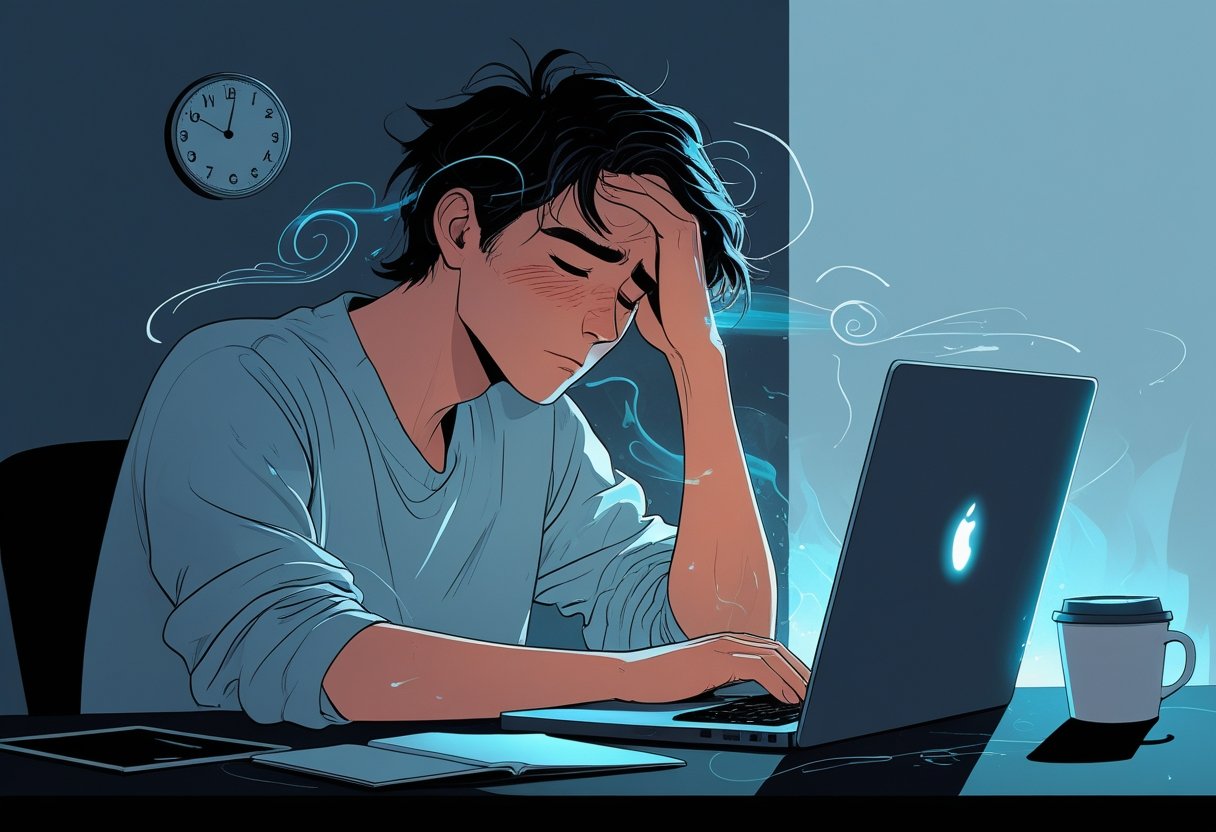
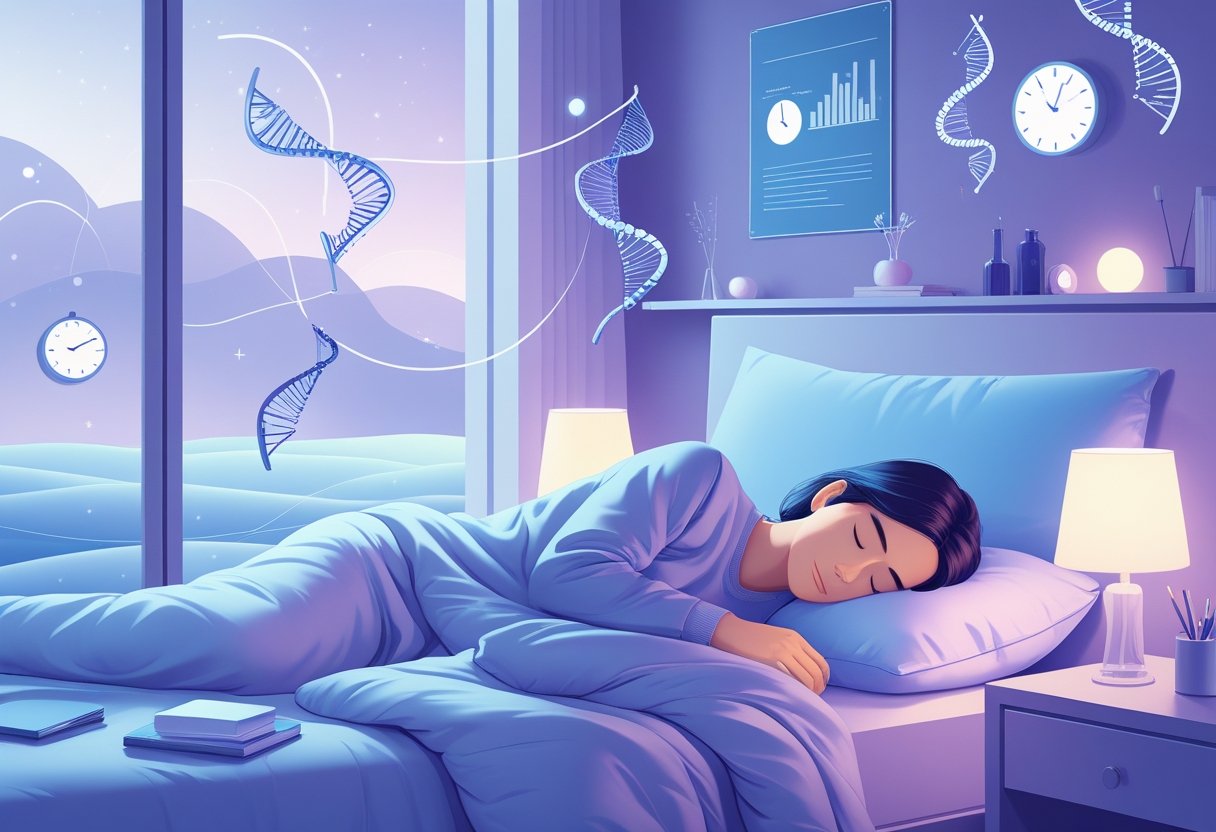
Sleep is made up of different cycles and stages that restore both the body and mind. The number of hours slept directly affects how well these processes work. Sleeping only three hours disrupts this balance and reduces sleep’s overall benefits.
Understanding Normal Sleep Cycles
A full sleep cycle lasts about 90 minutes and repeats several times during the night. Each cycle includes four stages: three stages of non-REM (Rapid Eye Movement) sleep and one stage of REM sleep. Non-REM stages support physical restoration, while REM sleep is important in memory and learning.
Most people complete 4 to 6 cycles per night. Sleeping for just 3 hours allows time for only 2 cycles at most. This cuts short essential periods of deep and REM sleep, which affects mood, memory, and physical health.
Recommended Hours of Sleep for Adults
Most adults need 7 to 9 hours of sleep per night for optimal health. Sleeping less than 7 hours on a regular basis creates sleep debt, which gradually damages physical and mental well-being.
Sleeping 4 to 6 hours occasionally may feel manageable, yet it still poses health risks when it happens often. A single night with only 3 hours of sleep causes noticeable fatigue and weakens mental clarity the next day. Repeated nights with 5 hours or less increase the risk of problems like high blood pressure and a weakened immune system.
Stages of Sleep and Their Importance
The four sleep stages follow a sequence:
- Stage 1 (Light Sleep): The body begins to relax and brain activity slows.
- Stage 2: Brain waves continue to slow, body temperature drops, and heart rate decreases.
- Stage 3 (Deep Sleep): This stage supports physical recovery, growth, and immune strength.
- REM Sleep: Essential for cognitive functions such as learning, memory consolidation, and emotional regulation.
Sleeping only 3 hours limits time in both deep and REM stages. This shortage weakens memory formation and slows physical recovery. Sleeping 6 hours may still leave out some deep sleep, though the consequences are less severe than sleeping only 3. Missing these stages for even one night can reduce focus and increase stress the following day.
Only getting 3 hours of sleep causes several noticeable changes in how the body and mind function. It impacts thinking, mood, and physical health soon after waking. These effects highlight why functioning on 3 hours of sleep proves difficult for most people.
Cognitive Performance and Alertness
With only 3 hours of sleep, mental sharpness declines rapidly. The brain struggles to focus, recall details, and process information. Tasks that require concentration become more difficult, and reaction times slow down.
Problem-solving and decision-making also suffer since the brain regions responsible for attention and memory remain under-rested.
Even short periods of wakefulness lead to lapses in alertness, which explains why many feel extremely drowsy and less capable of managing complex tasks after just 3 hours of rest. Driving or operating machinery in this state is unsafe.
Mood and Emotional Stability
Only 3 hours of sleep significantly affects mood. Irritability rises, and patience tends to diminish. Minor frustrations may seem overwhelming.
Emotional control weakens, so feelings of anxiety or stress may arise more easily. This occurs because the brain’s ability to regulate emotions becomes impaired.
Social interactions often suffer as a result. Many feel less motivated or more withdrawn. Mood swings may also appear, making it harder to remain calm in everyday situations.
Physical Symptoms After Minimal Sleep
Physically, the body begins to show signs of sleep deprivation soon after only 3 hours of rest. Fatigue sets in, leading to low energy and muscle weakness.
Some experience headaches or dizziness as a result of inadequate sleep. The immune system also weakens temporarily, which increases vulnerability to illness.
Other common symptoms include heavy eyelids, blurred vision, and reduced coordination. These effects clearly demonstrate why relying on just 3 hours of sleep poses serious risks. Even one night of minimal rest can impair the ability to complete daily tasks safely and effectively.
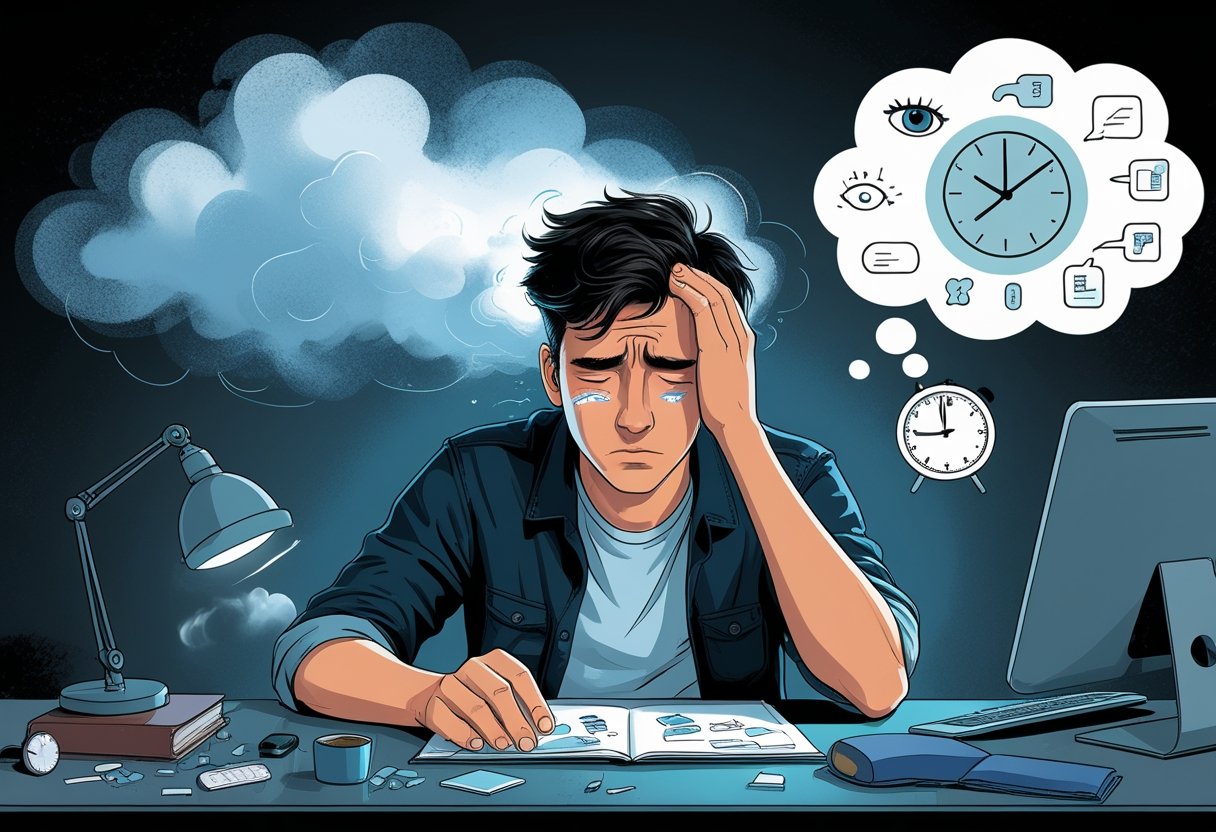
When someone sleeps only 3 hours, their brain and body face several immediate challenges. These effects reduce mental sharpness, weaken focus, and increase the chances of making errors or accidents.
Impaired Decision Making
Getting just 3 hours of sleep affects the brain’s ability to make clear decisions. The prefrontal cortex, responsible for judgment and problem-solving, functions less effectively, so decisions often become slower and less accurate.
People who sleep only 4 hours often struggle to weigh options properly. They may take risks they usually avoid or fail to think through consequences. This impacts daily choices, whether at work or in social situations.
Even when someone feels alert and wonders, “why am I not tired after 3 hours of sleep?”, their decision-making ability still suffers. Short sleep interferes with logical thinking and makes handling complex tasks more difficult.
Effects on Memory and Concentration
Sleeping only 3 hours reduces the brain’s ability to concentrate and retain information. Sleep strengthens memory and clears out unneeded details. Without enough rest, recall becomes unreliable.
Someone who sleeps just 3 hours may struggle to focus on even simple tasks. Attention spans shrink, making it harder to complete work or follow conversations. This decline in mental clarity also slows reaction times and causes frustration.
Tasks that require critical thinking or learning new information become more difficult. The brain loses its alertness, which can leave a person feeling mentally foggy or forgetful throughout the day.
Increased Risk of Accidents
A short night of sleep sharply increases the risk of accidents. With only 3 hours of rest, a person becomes more likely to misjudge distances, react too slowly, or make mistakes that lead to injury.
Driving or using machinery after limited sleep poses serious dangers. Impaired coordination and alertness mimic the effects of alcohol. Research shows that people who sleep only a few hours face much higher risks of car accidents or on-the-job injuries. This danger remains even if someone feels fully awake. The brain’s control over reflexes and motor skills still declines, creating risks that aren’t always obvious. After such a short night, extra caution becomes essential.

Sleeping only 3 hours for a single night causes noticeable drops in alertness and mood. Compared to getting between 4 and 6 hours, the effects grow more severe. How often someone sleeps this little also affects the risks to health and cognitive function.
3 Hours Versus 4–6 Hours of Sleep
Getting 3 hours of sleep falls far below the typical 4 to 6 hours that some people manage during busy nights. Although 4 hours still does not meet recommended sleep amounts, it generally allows more time in deep and REM stages than just 3 hours. This added rest improves memory and focus the next day.
Someone sleeping 4 or 5 hours per night may still feel tired, yet perform better than after only 3 hours. However, consistently sleeping just 4 hours often leads to problems such as irritability and difficulty concentrating.
Sporadic Short Sleep Versus Chronic Sleep Loss
Sleeping 3 hours for one night results in short-term issues like crankiness and poor decision-making. When this happens infrequently, the body recovers after a few nights of adequate sleep.
On the other hand, someone who routinely sleeps only 4 hours a night experiences chronic sleep deprivation. This pattern causes ongoing issues such as weakened immunity and impaired thinking.
Short bursts of extreme sleep loss can be managed with sufficient rest afterward. In contrast, consistently sleeping just 4 hours prevents the body and brain from reaching essential deep sleep stages, raising long-term health risks.
The key difference lies in recovery: occasional 3-hour sleep may be manageable if it remains rare, while chronic short sleep leads to lasting damage.
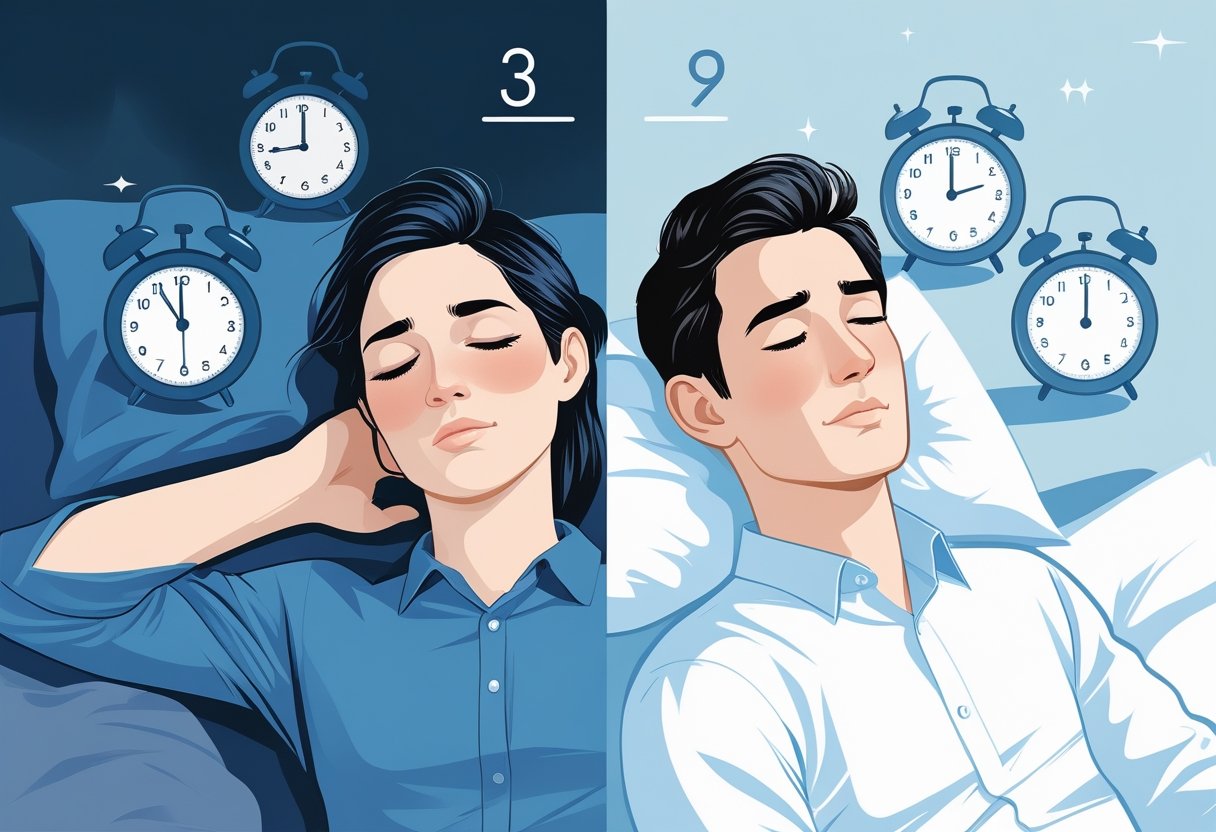
People may sleep only three hours due to several factors that limit their ability to stay asleep longer. These include habits, environmental issues, and health conditions. Recognizing these causes can clarify why someone struggles to get enough rest at night.
Causes of Insufficient Sleep
Stress often causes people to sleep only 3 to 5 hours at a time. Concerns about work, family, or finances may keep the mind alert and prevent restful sleep. Drinking too much caffeine or alcohol close to bedtime also cuts sleep short.
A poor sleep environment, such as loud noise, bright light, or an uncomfortable mattress, frequently interrupts rest. Many people ask, “Why can I only sleep 4 hours?” or “Why can I only sleep 5 hours?” These issues usually trace back to outside disruptions or irregular routines.
Lifestyle choices, including late-night screen use or inconsistent sleep schedules, also contribute to short sleep. Even when feeling exhausted, someone may still fail to sleep beyond 4 or 5 hours.
Sleep Disorders and Underlying Conditions
Medical issues often explain why some individuals get only 4 or 5 hours of sleep. Disorders such as insomnia, sleep apnea, or restless leg syndrome disrupt deep and continuous rest.
Short sleeper syndrome, a rare condition, allows someone to feel refreshed after only 4 to 6 hours of sleep. This condition contrasts with people who manage only 3 hours and feel fatigued throughout the day.
Mental health conditions like anxiety or depression also shorten sleep. They may cause early waking or frequent nighttime interruptions, leading people to ask, “Why can I only sleep 3 hours at a time?” or “Why do I only sleep 4 hours a night?”
In many situations, these issues call for medical attention. A healthcare professional can help diagnose the problem and recommend treatment to extend sleep time.
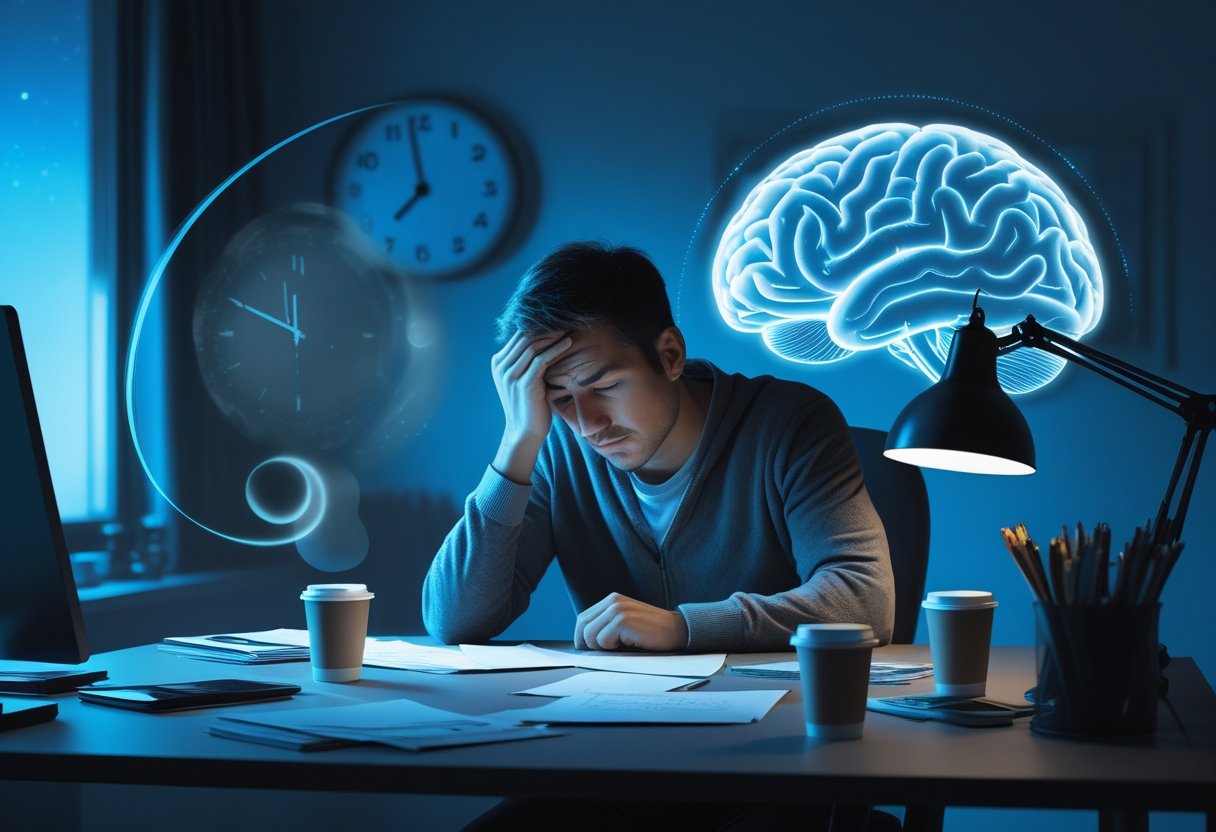
When someone gets only 3 hours of sleep, both body and mind require time to recover. Recovery means regaining focus, reducing sleepiness, and restoring normal mood and cognitive function.
How to Bounce Back After Minimal Sleep
After just 3 hours of sleep, most people feel tired and less alert. Waking up after 5 hours is slightly better, though it still leaves behind some sleep debt. To bounce back effectively, consider the following:
- Take short naps (15–30 minutes) during the day to reduce sleepiness.
- Drink water and avoid heavy meals to maintain energy levels.
- Avoid caffeine late in the day so the next night’s sleep remains undisturbed.
- Move around or go for a walk to boost alertness, but skip intense workouts.
Even if someone claims, “I only got 2 hours of sleep and I’m not tired,” their body remains under stress, and performance likely drops. Mild fatigue doesn’t always feel obvious, though reaction time and decision-making often suffer.
When Catch-Up Sleep Is Necessary
Catch-up sleep becomes essential after missing several hours at once. A single night with only 3 hours leads to sleep debt that impacts mood, memory, and coordination. Most people recover after one or two nights of solid sleep.
Sleep debt builds gradually but shrinks with consistent, quality sleep. Even one short night may require recovery if alertness or performance drops the next day.
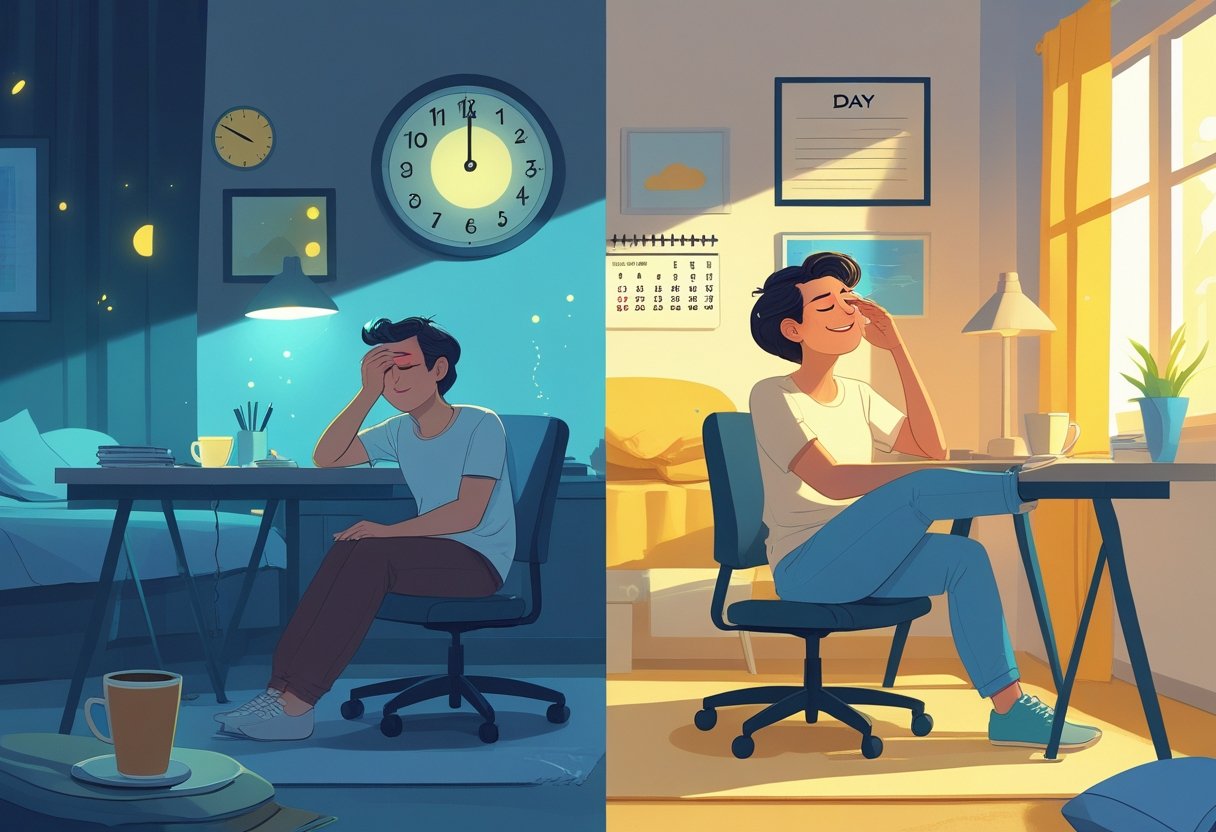
Improving sleep requires focusing on habits before bed and lifestyle choices over time. Both evening activities and daily routines influence how long and how well someone sleeps.
Effective Sleep Hygiene Practices
Good sleep hygiene begins with a consistent schedule. Going to bed and waking up at the same time every day regulates the body’s internal clock. Even if someone only gets 5 hours of sleep, maintaining a routine can improve sleep quality.
Avoid caffeine at least 10 hours before bed since it can keep someone awake despite feeling tired. Also, heavy meals or alcohol close to bedtime disrupt sleep. It’s best to stop eating and drinking at least 3 hours before going to sleep.
Relaxing routines before bed help the body wind down. Activities such as reading, gentle stretching, or listening to soft music reduce stress. Avoid screens and bright lights 1-2 hours before sleep to limit stimulation that makes falling asleep harder.
Lifestyle Changes to Support Better Rest
Daytime habits influence sleep as much as nighttime routines do. Regular exercise promotes longer, deeper sleep but should occur at least a few hours before bedtime.
Managing stress throughout the day also matters. Techniques like mindfulness, meditation, or journaling reduce anxiety that might prevent sleep at night.
For those wondering “Why am I only sleeping 4 hours?” or struggling with getting just 5 hours, reducing naps and avoiding clock-watching at night may help. Exposure to bright daylight during the day also strengthens the sleep-wake cycle, which makes it easier to fall asleep at night.
Together, these actions increase sleep duration and make rest more restorative. Slow, steady changes prove most effective in improving overall sleep.
Choosing the right mattress is essential in improving sleep quality. A mattress that provides proper support keeps the spine aligned. This reduces pressure points and eases discomfort throughout the night.
A medium-firm mattress is often recommended because it balances support and comfort effectively. It prevents back pain and maintains the body in a natural position. Many people wake up feeling less stiff when they sleep on a mattress like this.
Besides support, a good mattress helps regulate body temperature. This prevents overheating and sweating, which disrupt sleep. Cooler and more comfortable conditions encourage longer and more restful sleep periods.
The Nolah Original 10″ mattress is designed to provide such support. It features zoned AirFoam ICE for targeted pressure relief and cooling, particularly beneficial for side and back sleepers. The Tencel cover enhances breathability and helps to regulate body temperature and prevent overheating.
Here is a quick look at mattress benefits:
- Spinal alignment: Reduces back and neck pain
- Pressure relief: Prevents soreness and discomfort
- Temperature regulation: Helps maintain a comfortable sleep environment
Overall, a quality mattress supports the body physically and improves sleep. Better sleep links to enhanced mood, focus, and health. Choosing a mattress designed for an individual’s needs is a simple way to promote better rest and well-being.

Frequently Asked Questions
Getting only three hours of sleep in one night causes clear effects on alertness, mood, and performance. It improves on no sleep but still leaves the body tired and less focused. Repeated short sleep increases health risks over time.

